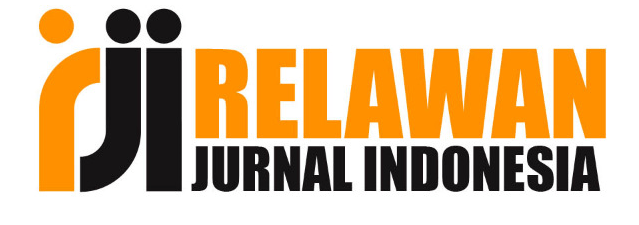DETERMINAN FAKTOR YANG MEMPENGARUHI KEMANDIRIAN ANAK AUTIS BASED ON SISTEMATIC REVIEW
Abstract
ABSTRACT
Introduction: Autism Spectrum Disorders (ASD) is a neurodevelopmental disorder in children that is influenced by various factors, one of which is genetic and environmental factors, immune system disorders, and inflammation. Independence is the state of being able to take care of oneself without depending on others. Children with intellectual disabilities need basic skills in at least two areas of independence: reading, writing, communication and arithmetic, children's ability to make their own decisions for all activities. Objective: This research aims to determine whether there are determinant factors that influence independence in autistic children based on systematic . Methodology: the type of research used is descriptive qualitative using a research method, namely a synthesis of systematic review studies that are systematic, clear, comprehensive by identifying, analyzing, evaluating through collecting existing data with an explicit search method and involving a process that has been carried out. critical in selecting studies. Results: Based on the results of a systematic review of 10 journals, 5 factors were found that influence the independence of children with autism. Conclusion: Based on the results of a systematic review research regarding the Determinants of Independence in Autistic Children. The results of systematic review research from 10 journals have found 5 factors that cause independence in children with autism. Suggestion: It is hoped that the results of this systematic study will become input for researching the independence of autistic children by developing related variables.
ABSTRAK
Pendahuluan: Autisme Spectrum Disorders (ASD) suatu gangguan perkembangan saraf pada anak yang dipengaruhi macam-macam faktor, salah satunya genetic dan faktor ligkungan, gangguan system imun, serta inflamasi Kemandirian adalah keadan mampu mengurus diri sendiri tanpa bergantung pada orang lain. Anak-anak penyandang disabilitas intelektual memerlukan keterampilan dasar setidaknya dalam dua bidang kemandirian : membaca, menulis, komunikasi dan berhitung kemampuan anak dalam mengambil keputusan sendiri segala aktivitas Tujuan: penelitian ini bertujuan untuk mengetahui apakah ada determinan faktor yang mengpengaruhi kemandirian pada anak autis based on systematic. Metodologi: jenis penelitian yang diguakan adalah kualitatif Deskriptif dengan menggunakan metode penelitian yakni sebuah sintesis dari studi systematic review yang bersifat sistematik, jelas, menyeluruh dengan mengidentifikasi, menganalisis, mengevaluasi melalui pengumpulan data-data yang sudah ada dengan metode pencarian yang eksplist dan melibatkan proses telah kritis dalam pemilihan studi. Hasil: Berdasarkan hasil penelian systematic review dari 10 jurnal, telah ditemukan 5 faktor yang mempengaruhi kemandirian anak autis. Kesimpulan: Berdasarkan hasil penelitian systematic review mengenai Determinan Kemandirian Anak Autis. Hasil penelitian systematic review dari 10 jurnal telah ditemukan 5 faktor penyebab terjadinya kemandirian anak autis. Saran: Diharapkan hasil studi systematic ini akan menjadi bahan masukan untuk meneliti tentang kemandirian anak autis dengan mengembangkan variable terkait.
Keywords
Full Text:
PDFReferences
Almazaydeh, L. et al. (2022) ‘Virtual reality technology to support the independent living of children with autism.’, International Journal of Electrical & Computer Engineering (2088-8708), 12(4).
Atmaja, J. R. (2018) ‘Pendidikan dan bimbingan anak berkebutuhan khusus’, Bandung: PT Remaja Rosdakarya, 1.
Baker, E. et al. (2021) ‘Daily living skills in adolescents with autism spectrum disorder: Implications for intervention and independence’, Research in Autism Spectrum Disorders, 83, p. 101761.
Ferasinta, F. (2020) ‘Perspektif Orangtua Terkait Kemandirian Anak Autis Pada Aspek Sosial’, Jurnal Keperawatan Muhammadiyah Bengkulu, 8(2), pp. 102–106.
Hanung, A. and Annapi’a, S. A. (2019) ‘HUBUNGAN LAMA PENDAMPINGAN DENGAN KEMAMPUAN KEMANDIRIAN ANAK AUTIS DI ASRAMA DAN HIPERAKTIF AROGYA KLATEN’, Jurnal Komunikasi Kesehatan, 10(2).
Hasanah, N. (2017) ‘Strategi Terapis dalam Mendidik Kemandirian Anak Autis di Sekolah Luar Biasa (SLB) Sri Soedewi Masjchkun Sofwan Kota Jambi.’, JIGC (Journal of Islamic Guidance and Counseling), 1(1), pp. 27–40.
Indiyana, A. and Utami, R. D. P. (2021) ‘Hubungan Antara Parental Awareness Dengan Kemandirian Adl (Activity Daily Living) Pada Anak Autis Di Slb Ypac Prof. Dr. Soeharsono Surakarta’.
Kemendikbud, P. D. (2020) ‘Statistik Pendidikan Luar Biasa (PLB) 2019/2020’.
Kurnia, E. (2015) Autisme Indonesia terus meningkat, Okezone. Available at: https://health.okezone.com/read/2015/04/02/481/1128312/autisme-di-indonesia-terus-meningkat.
Maenner, M. J. (2020) ‘Prevalence of autism spectrum disorder among children aged 8 years—autism and developmental disabilities monitoring network, 11 sites, United States, 2016’, MMWR. Surveillance summaries, 69.
Onore, C., Careaga, M. and Ashwood, P. (2012) ‘The role of immune dysfunction in the pathophysiology of autism’, Brain, behavior, and immunity, 26(3), pp. 383–392.
Ozboke, C., Yanardag, M. and Yilmaz, I. (2022) ‘Exploring the relationships between motor proficiency, independence and quality of life in adolescents with autism spectrum disorder’, International Journal of Developmental Disabilities, 68(6), pp. 850–857.
Sunarty, K. (2016) ‘Hubungan pola asuh orangtua dan kemandirian anak’, Journal of Educational Science and Technology (EST), 2(3), p. 152.
Suryati, S. and Apriliana, P. (2022) ‘Kemandirian Perawatan Diri pada Anak Autis’, Jurnal Penelitian Perawat Profesional, 3(1), pp. 153–158.
DOI: https://doi.org/10.52118/edumasda.v9i1.267
Refbacks
- There are currently no refbacks.
Copyright (c) 2025 Rita Dwi Pratiwi, Meida Azzahra, Frida Kasumawati

This work is licensed under a Creative Commons Attribution-NonCommercial-ShareAlike 4.0 International License.
Sekolah Tinggi Ilmu Kesehatan Kharisma Persada
Pajajaran Street Number 1 Pamulang,
South Tangerang City, Banten Province, Indonesia, 15417
Telephone: 021-74716128 / Handphone : 081384462729

Edu Masda Journal by Sekolah Tinggi Ilmu Kesehatan Kharisma Persada is licensed under a Creative Commons Attribution-ShareAlike 4.0 International License.
Based on a work at http://openjournal.masda.ac.id/index.php/edumasda/index.




